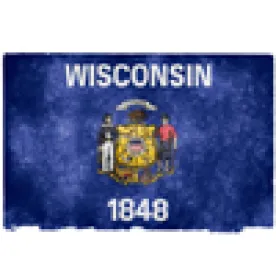On March 24, 2020, Wisconsin Governor Tony Evers issued “Emergency Order #12: Safer at Home Order” in response to the COVID-19 pandemic. The order, which requires Wisconsin residents to “stay at home or place of residence” except to engage in certain activities, is similar to those issued in several other states (including California, Delaware, Illinois, Indiana, Michigan, and Pennsylvania). The order also closes all non-essential businesses and operations in the state of Wisconsin, and requires essential businesses to avoid face-to-face meetings and transition to remote work to the maximum extent possible.
Highlights
The order became effective at 8:00 a.m. on Wednesday March 25, 2020, and will remain in effect until 8:00 a.m. on Friday, April 24, 2020. The order requires that all individuals in Wisconsin stay at home except to engage in the following functions:
-
Essential Activities;
-
Essential Governmental Functions;
-
Essential Businesses and Operations;
-
Minimum Basic Operations; and
-
Essential Travel.
All for-profit and non-profit entities that fall outside the definition of “Essential Businesses and Operations” must cease all business activities, function on “Minimum Basic Operations,” or operate exclusively with employees working from home. “Minimum Basic Operations” include the minimum necessary activities to maintain the business’s inventory, physical plant and equipment, security, and payroll and employee benefits, and to facilitate employees working remotely.
A violation of the order is “punishable by up to 30 days imprisonment, or up to $250 fine, or both.” This order supersedes all local orders in place related to closures or essential activities.
Essential Activities
As defined by the order, Wisconsin residents can leave their home or to perform any of the following activities:
-
To engage in activities or perform tasks essential to their health and safety, or essential to the health or safety of a family member. This includes, but is not limited to, getting medication, attending an appointment with a healthcare profession, or visiting an emergency department.
-
To obtain supplies or services they need for themselves or their family, including food, gasoline or other household items.
-
To engage in outdoor activity, such as running, hiking or biking. Though contact sports are prohibited, individuals may visit public parks so long as they comply with social distancing rules.
-
To perform work at Essential Businesses or Operations, to perform Minimum Basic Operations and to obtain supplies needed to work from home.
-
To care for a family member, friend, or pet in another household.
Essential Businesses and Operations
As explained above, individuals may leave home to work for certain “Essential Businesses and Operations.” The order states that these businesses “are encouraged to remain open,” but shall limit in-person contact to the greatest extent possible through use of virtual meetings, teleconferences, remote work and other technology.
All businesses that remain open must comply with the social distancing requirements to the greatest extent possible. These requirements include:
-
Keeping at least six feet between people;
-
“Washing hands with soap and water for at least 20 seconds as frequently as possible or using hand sanitizer;”
-
“Covering coughs or sneezes (into the sleeve or elbow, not hands);”
-
“Regularly cleaning high-touch surfaces;”
-
“Not shaking hands; and”
-
“Following all other public health recommendations issued by [the Department of Homeland Security] and the U.S. Centers for Disease Control and Prevention.”
Essential Businesses and Operations may want to consider placing these directives in writing and posting or distributing them to ensure compliance.
Essential Businesses and Operations, as defined by the order, include the following:
-
Healthcare and public health operations
-
Human services operations
-
Essential infrastructure
-
Essential government functions
-
Any business or worker identified in guidance issued by the Department of Homeland Security’s Cybersecurity and Infrastructure Security Agency
-
Stores that sell grocery and medicine (including big-box stores that sell supplies along with groceries)
-
Food and beverage production, transport, and agriculture
-
Restaurants and bars for take-out or delivery service only
-
Childcare with restrictions
-
Organizations that provide charitable and social services
-
Weddings, funerals, and religious entities. These may remain open, but social distancing must be practiced and gatherings must include fewer than 10 people.
-
Funeral establishments. These may remain open, but social distancing must be practiced and gatherings must include fewer than 10 people.
-
Media
-
Gas stations and businesses needed for transportation
-
Financial institutions and insurance services
-
Hardware and supply stores
-
Critical trades. Critical trades are defined as “Building and Construction Tradesmen and Tradeswomen, and other trades including, but not limited to, plumbers, electricians, carpenters, laborers, sheet metal, iron workers, masonry, pipe trades, fabricators, finishers, exterminators, pesticide application, cleaning and janitorial staff for commercial and governmental properties, security staff, operating engineers, HVAC, painting, moving and relocation services, forestry and arborists, and other service providers who provide services that are necessary to maintaining the safety, sanitation, and essential operation of residences, Essential Activities, Essential Governmental Functions, and Essential Businesses and Operations.”
-
Mail, post, shipping, logistics, delivery, and pick-up services
-
Public and private K-12 schools. These may remain open, but are limited to facilitating distance learning or virtual learning. The order states that schools “may be used for Essential Government Functions and food distribution.”
-
Laundry services
-
Supplies to work from home
-
Supplies for Essential Businesses and Operations and Essential Governmental Functions
-
Transportation. Transportation is defined as “Airlines, taxis, transportation network providers…vehicle rental services, paratransit, and other private, public, and commercial transportation and logistics providers necessary for Essential Activities…”
-
Home–based care and services. This includes “Home-based care for seniors, adults, children, and/or people with disabilities, substance use disorders, and/or mental illness, including caregivers or nannies who may travel to the child’s home to provide care, and other in-home services including meal delivery.”
-
Residential facilities and shelters. This includes residential facilities and shelters for adults, seniors, children, and/or people with developmental or intellectual disabilities, substance abuse disorders and/or mental illness.
-
Professional services. This includes services “such as legal or accounting services, insurance services, real estate services (including appraisal, home inspection, and title services). These services should, to the greatest extent possible, use technology to avoid meeting in person, including virtual meetings, teleconference, and remote work.”
-
Manufacturing, distribution, and supply chain for critical products and industries. This includes “Manufacturing companies, distributors, and supply chain companies producing and supplying essential products and services in and for industries such as pharmaceutical, technology, biotechnology, healthcare, chemicals and sanitation, waste pickup and disposal, agriculture, food and beverage, transportation, energy, steel and steel products, petroleum and fuel, mining, construction, national defense, communications, and products used by other Essential Governmental Functions and Essential Businesses and Operations.”
-
Critical labor union functions
-
Hotels and motels. All pools, hot tubs, and exercise facilities must remain closed and guests are prohibited from congregating in common areas.
-
Higher educational institutions. This is limited to facilitating distance learning, performing critical research, or performing essential functions as determined by the institution.
-
WEDC designated businesses. If a business is not included on the list of Essential Businesses and Operations, but believes it should receive this designation, the business should consult the information page on the Wisconsin Economic Development Corporation (WEDC) website. Companies may apply to request such designation.
Essential Travel
Essential Travel includes travel to and from all Essential Activities, Essential Businesses and Operations, and other essential purposes exempted by the order. Those engaging in Essential Travel should comply with social distancing requirements to the extent possible.
Essential Governmental Functions
Essential Governmental Functions are exempt from the order. Essential Governmental Functions include “all services provided by the State, tribal, or local governments needed to ensure the continuing operation of the government body and provide and support the health, safety, and welfare of the public.” The following are exempt from the order: “all paid or volunteer first responders including law enforcement, EMS, and firefighters; first responder training academies; building inspectors; emergency management personnel; emergency dispatchers; court personnel, jurors and grand jurors; corrections personnel; hazardous materials responders; child protection and child welfare personnel; housing and shelter personnel; National Guard and military; and others working for or to support Essential Businesses and Operations.”
Closures
The order explicitly closes several facilities, including places of amusement, defined as “amusement parks, carnivals, water parks, licensed public or private swimming pools, splash pads, aquariums, zoos, museums, arcades, fairs, children’s play centers, playgrounds, funplexes, theme parks, bowling alleys, movie and other theaters, concert and music halls, country clubs, social clubs, gyms and fitness centers”; and, salons and spas, defined as “”hair salons, barber shops, nail salons, day spas, electrolysis providers, waxing salons, eyebrow-care establishments, tattoo parlors, body art establishments, and tanning facilities.” The order also explicitly closes public and private schools (except for facilitating distance or virtual learning services), and public libraries (except for providing online services and programming).
Milwaukee “Stay-at-Home” Order
In addition to the order issued by Governor Evers, the City of Milwaukee issued its own “stay-at-home” order on March 23, 2020. The city’s order went into effect at 12:01 a.m. on March 25, 2020. This order includes several of the same limitations as the state’s order, including the closure of non-essential businesses and operations. The order also contains many of the same exemptions for Essential Businesses and Operations. In the event the two orders conflict with each other, the state’s order explicitly supersedes all local ordinances.





 />i
/>i

